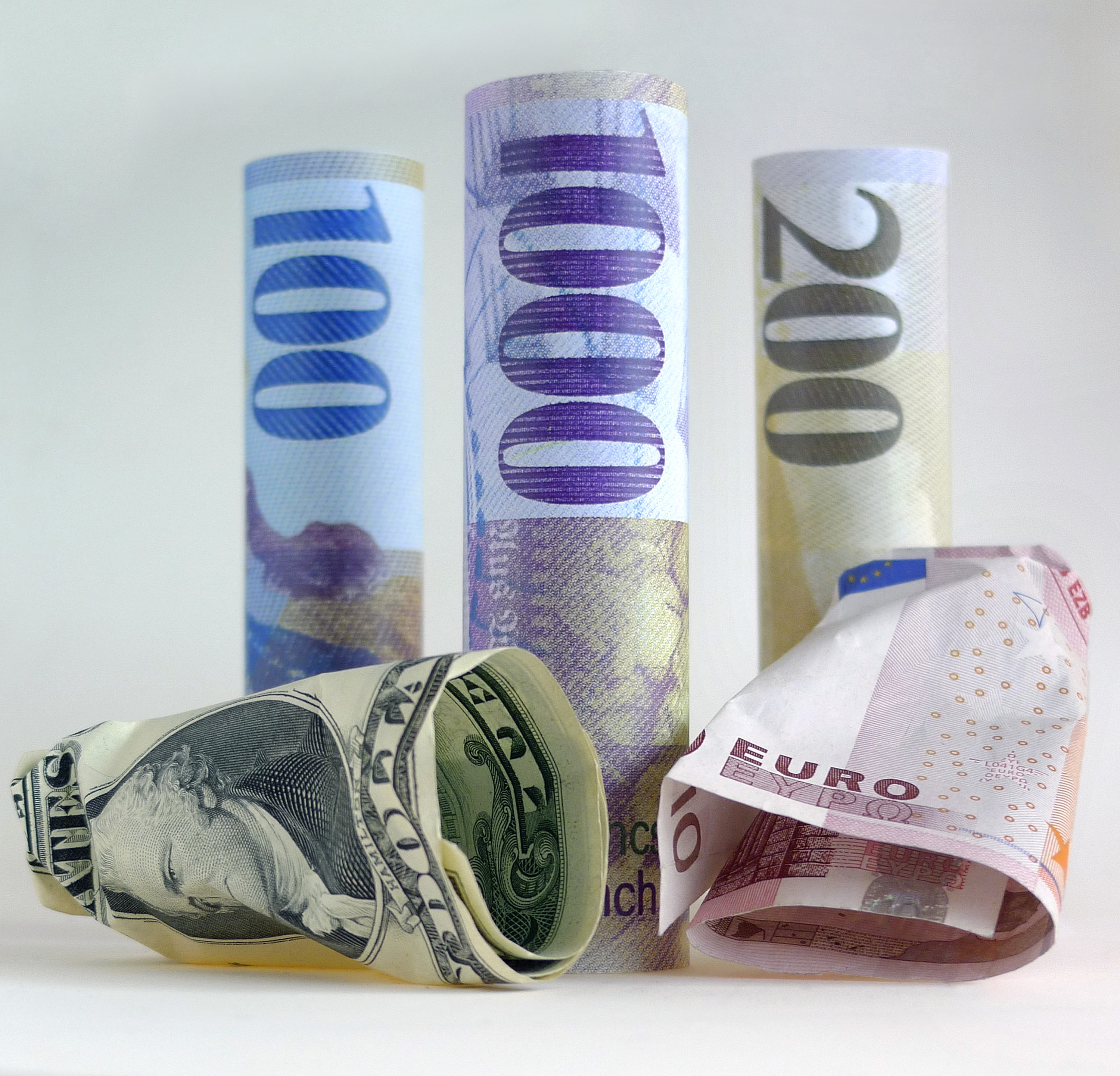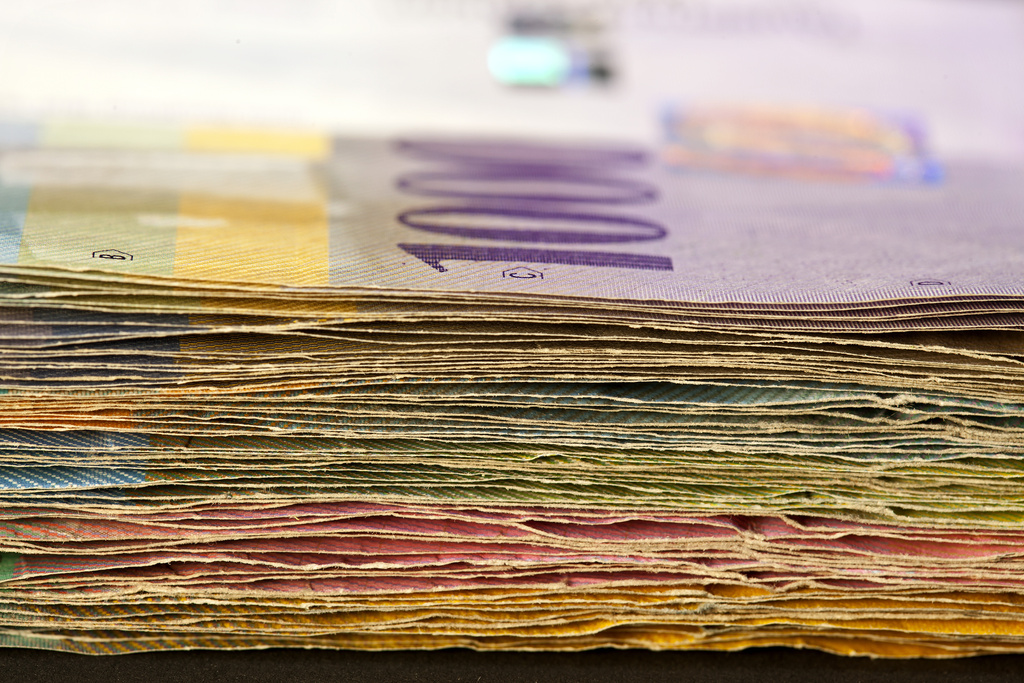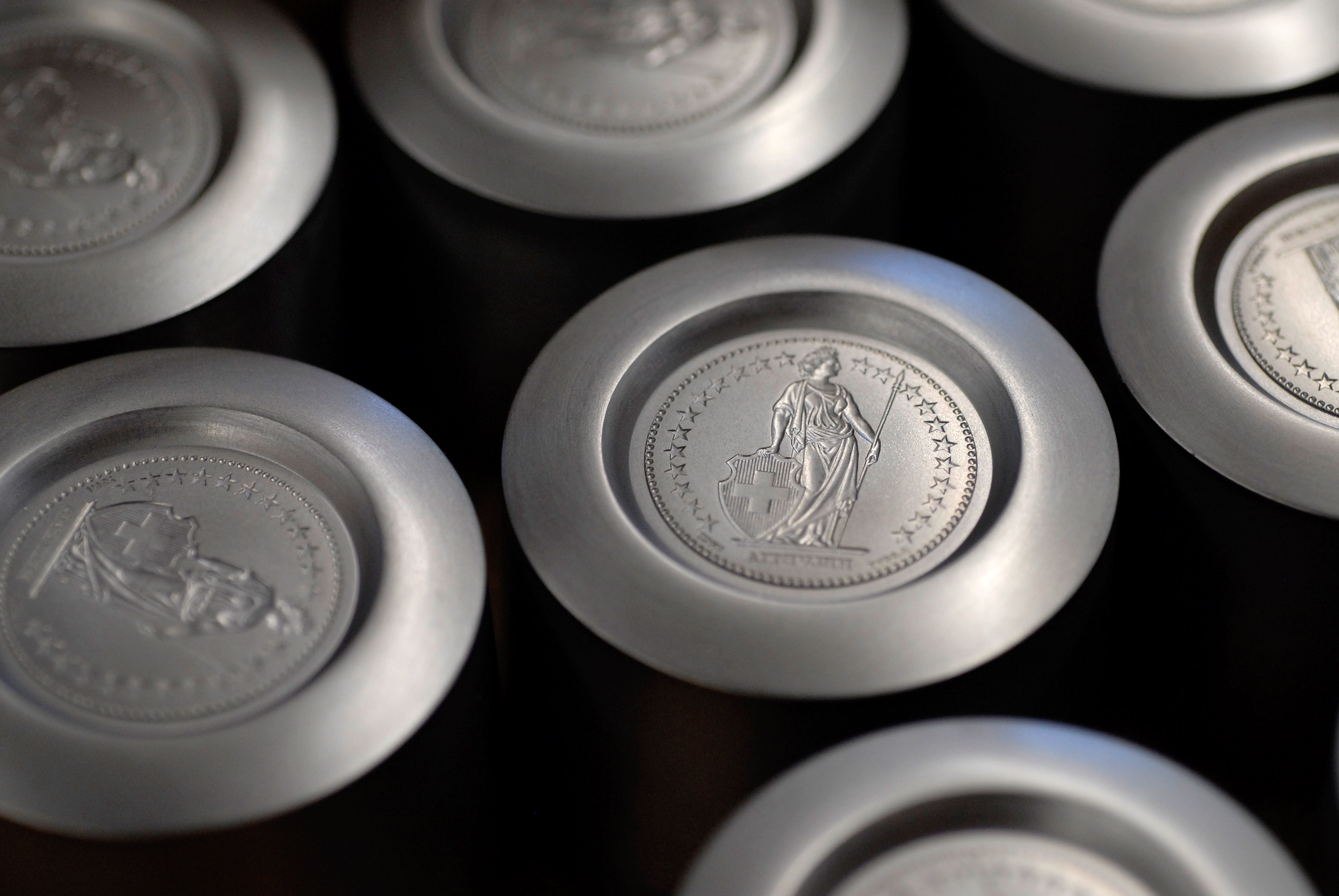Strong franc talks produce no easy fix

The State Secretary in the economics ministry, Jean-Daniel Gerber, says the strong Swiss franc could weigh on Switzerland’s economic recovery.
He was speaking at a news conference in Bern after top-level talks organised by the State Secretariat for Economic Affairs (Seco) mandated by Swiss Economics Minister Johann Schneider-Ammann.
“If it continues, the high cost of the Swiss franc vis-à-vis the euro and the [United States] dollar entails considerable risks for the Swiss economy,” Gerber said.
However, the meeting came up with no concrete results to prevent the franc’s appreciation.
Gerber said only the Swiss National Bank (SNB) could try to combat such a situation.
The central bank has tried to curb the ascent of the franc by buying up massive amounts of euros, but was forced to abandon the policy after racking up losses of SFr21 billion ($21.7 billion) on foreign exchange deals by the end of the third quarter of 2010.
Late on Friday the SNB reported it had made a loss of around SFr26 billion on its foreign currency positions in 2010 but, owing in particular to valuation gains on gold of just under SFr6 billion, an overall loss of SFr21 billion was expected.
In a statement, it added that the bank’s capital base continued to be “robust” compared with other central banks.
Alarm
The franc has gained more than 12 per cent against the euro in the last 12 months and five per cent against the dollar, which has been causing alarm among Swiss exporters.
Their goods are, for example, more expensive to buy in euro zone countries and companies have been seeing their margins eroding.
Representatives of the Swiss government, the economy, the trade unions and various sectors took part in the top-level meeting, to assess the “opportunities and risks” of the strong franc.
After the meeting on Friday, the Swiss Trade Union Federation criticised that it had been a summit with an “exchange of ideas” and no concrete steps had been decided. However, it added it was positive that the meeting had taken place.
The director of the Swiss Business Federation (economiesuisse), Pascal Gentinetta, commented that the strong franc had made Switzerland a “victim of its [own] success” and called on companies to diversify and increase productivity through innovation.
No cause for panic
The chief investment officer of Credit Suisse, representing Swiss banks, argued that it was better to let market forces operate because it was difficult to steer the exchange rate of the franc. But, he noted there was no cause for panic.
However, Peter Dietrich, director of the umbrella organisation of the engineering industries, Swissmem, called on the government to take a clear position on the issue. He said the existence of some companies would eventually be threatened by the continuation of a strong franc
A Seco statement after the talks pointed out that there was no consensus on measures that could be taken but participants agreed that the Swiss National Bank should remain independent in steering the country’s monetary policy.
Before Friday’s meeting, a number of ideas had been put forward to try to prevent the appreciation of the franc.
These included pegging the franc to the euro, selling gold, accelerating inflation, negative interest rates, limiting the inflow of capital and paying salaries to cross-border workers in euros.
They also included the reintroduction of a gentlemen’s agreement between the SNB and Swiss banks that came into in operation in 1976. This was to dissuade the banks from carrying out speculative currency transactions.
The findings of the talks will now be passed on to Economics Minister Schneider-Ammann.
The Swiss franc is a so-called “safe haven” currency, that means that investors and speculators buy it when other currencies, including the euro and the United States dollar, are under pressure.
The increasing value of the Swiss franc is a source of great frustration for exporters because their goods are more expensive to sell outside Switzerland, particularly in the eurozone.
It costs around SFr 1.29 ($1.34) to buy a euro at present. A year ago, it would have cost SFr1.48. The increase in the value of the franc over the 12 months is more than 12%.
The Swiss National Bank has emphasised that it does not pursue an exchange rate target, but consistently bases its monetary policy on its legal mandate.
This mandate stipulates that “the SNB is required to ensure price stability, while taking due account of economic developments”.
It is the official currency of the euro zone, which includes 17 of the 27 members of the European Union.
The currency is used daily by well over 300 million Europeans. It is also used by more than 150 million people in Africa.
It is the second largest reserve currency and the second most traded currency in the world after the US dollar.

In compliance with the JTI standards
More: SWI swissinfo.ch certified by the Journalism Trust Initiative













You can find an overview of ongoing debates with our journalists here . Please join us!
If you want to start a conversation about a topic raised in this article or want to report factual errors, email us at english@swissinfo.ch.